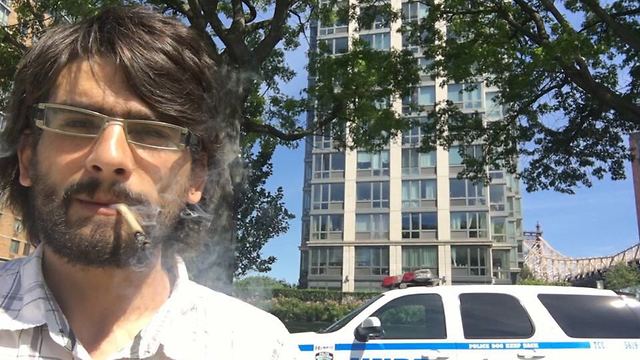
Telegrass made drug-dealing in Israel easy
In the two years since its inception, the cloud-based channel attracted thousands of dealers and hundreds of thousands of buyers, and when it was smashed by police this week, it had led to transactions worth hundreds of millions of shekels
While the issue of allowing legalizing cannabis is gaining a central place in the Israeli election campaign, police launched a huge operation against the drug-dealing network Telegrass, which operates within the encrypted messaging app Telegram.
On Tuesday, police arrested 42 of the channel's operators - 39 in Israel and three abroad - including Telegrass founder and manager Amos Dov Silver, a US resident who was detained during a visit to Ukraine.
The Telegrass group was established exactly two years ago, in March 2017, and immediately revolutionized the cannabis trade in Israel. The group enabled sellers and growers of cannabis to present their wares to customers (type, price, manner of collection, etc.) and directly coordinate transactions with them.
Anyone wanting to buy cannabis went to the group, contacted one of the vendors who posted there, sent them a copy of their identity card and a selfie so that the vendor could verify that the would-be buyer was not an undercover cop, and a short time later a messenger would appear with the drugs.
Due to the ease with which it was possible to buy and sell, thousands of sellers and hundreds of thousands of buyers joined the group, which became the main drug-dealing arena in Israel. The transactions via Telegrass were estimated to have reached into the hundreds of millions of shekels, and over time the channel expanded and facilitated drug deals abroad too.
The dealers, some 10,000 worldwide, paid the channel's managers NIS 420 (approx. $115) for the right to sell their drugs via the app. In total, the dealers paid the channel managers some NIS 2 million (approx. $550,000) every month.
The police invested great effort in cracking down on the network, which operated through the secure Telegram application and employed programmers to encrypt the connection between merchants and consumers.
At the end of a long and covert investigation, according to investigators from the Lahav 433 crime unit, the organizational structure of the network was smashed and the identities of the key operators revealed, at which point the investigation stopped being undercover and the 42 senior channel operators were arrested.
The 39 suspects arrested in Israel were brought to the Magistrate's Courts in Rishon Lezion and Nazareth for remand extensions. During the remand hearings, police declared, for the first time in Israel, a crime organization was operating on the Internet.

The detainees are suspected of a variety of offenses, including "managing and financing a criminal organization, trading and supplying dangerous drugs within the framework of a criminal organization, mediating dangerous drug business within the framework of a criminal organization, disrupting legal proceedings within a criminal organization, conspiracy to commit crime, tax evasion and other offences."
Police said Tuesday that Telegrass did not stop at selling cannabis and hashish, but also sold hard drugs. In addition, the police said, drug dealers were selling drugs to minors. "Most of the suspects belong to the highest echelons of the organization, including its head, his three deputies and senior officials," police said.
"Today we are talking about one of the most important and central infrastructures for dealing in dangerous drugs in Israel, and as mentioned above, dozens of senior management members, thousands of merchants and tens of thousands of users have joined the company," police said.
"The members of the network acted as a criminal organization for all intents and purposes in an orderly and methodical manner over a long period of time, in which they managed to trade in dangerous drugs of various kinds, including cocaine, MDMA and ecstasy, in addition to huge quantities of hashish and marijuana."
Meanwhile, the head of Northern Command's intelligence division, Chief Superintendent Moshe Sheetrit, sought Tuesday to calm worried cannabis users. "We are not targeting users," Sheetrit said, "at the moment they are not part of our operation. They need to worry about their continued drug use, and we hope that this app won't be available in future."
Attorneys for the defendants denied that their clients were connected to a criminal organization.












